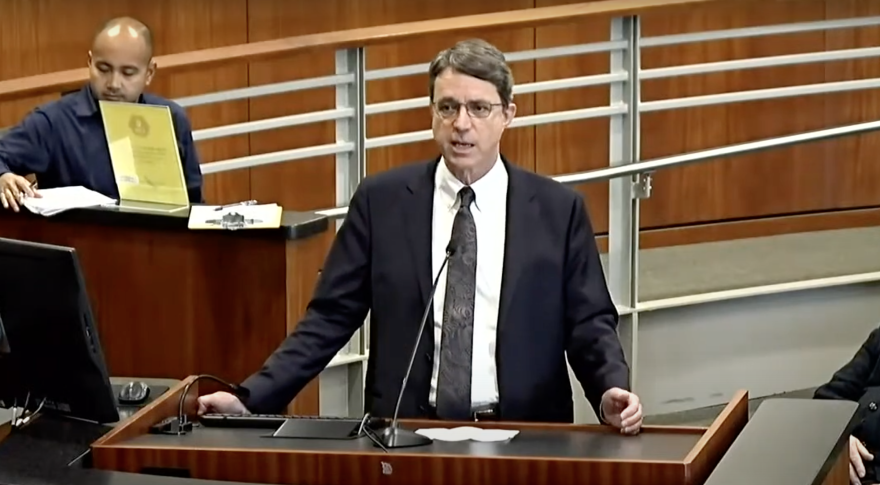MADERA, Calif. – The Madera County Board of Supervisors issued letters to California Gov. Gavin Newsom and state legislators as well as to the board of the now-closed Madera Community Hospital in a latest push to restore healthcare services in the county.
The letters were approved unanimously at a recent board meeting, and signaled a direct action from county officials in their search for answers after the hospitals' closure last month.
“We've gone from an underserved community, medically, to [an] unserved community, medically, and that's unacceptable in any society,” Supervisor David Rogers said.
The letter from supervisors to legislators asks for actions like revisiting Medi-Cal reimbursement rates, direct funding to struggling hospitals and no-interest loans to bridge gaps in funding after the pandemic.
Supervisors warned of a wider collapse of services that could stem from hospital strains.
“This is a perfect storm of circumstances that is coming down statewide. In fact, it's almost on a national scale and you're going to see more and more hospitals drop,” Rogers said.
The supervisors have also hired a consulting company to perform a detailed analysis of the hospital’s financial struggles in the five years leading up to the closure, and the letter to hospital board officials also seeks a detailed history of the hospital's staffing and finances.
Supervisors hired Force 10 Partners, a national financial advisory firm that has helped at least one other rural hospital in California restructure finances after bankruptcy.
Despite the closure of its hospital and rural clinics, Madera Community Hospital still hasn’t filed for bankruptcy – something county supervisor and hospital board member Rob Poythress sees as a hopeful sign.
“The message there is the hospital is still working very, very diligently to put something together on an operating model that works,” Poythress said.
Shuffle of patients, ambulance transport

County officials hope a review of the hospital’s financial struggles will lead to restoring healthcare services. But since the closure of medical services, the county has gotten a clearer picture of how the community has been impacted.
Out of 7,000 patients who received care at the three rural clinics that closed on Jan. 10, about 6,500 have been enrolled into Camarena Health for primary care needs. That’s an estimation by Madera County Health Officer Dr. Simon Paul.
Camarena Health is a federally-qualified health center that operates 18 health centers across Madera County, including urgent care services. The federal government’s Health Resources and Services Administration recently approved Camarena Health’s application to add access to healthcare specialists within its scope of services.
“We’re incredibly lucky that there's a system large enough to be able to take on that many primary care patients and adjust to include specialists in their care,” Paul said.
But he noted it has not been easy transferring data for thousands of patients to another system, especially patients with less access to transportation.
Paul told supervisors Madera Community Hospital used to take in about 420 ambulance transports per month. In January, that number dropped to about 350 transports to hospitals farther away in Merced and Fresno. Pistoresi Ambulance, Sierra Ambulance and American Ambulance are the main transporters of patients in the county. Their response times have not changed, Paul said.
Paul noted there hasn’t been a surge in 911 calls, but instead there have been fewer calls to emergency personnel, raising other questions.
“People probably are reluctant to call 911 just for transport to get to Fresno, because how are they going to get home? It's not a trivial thing to call 911,” he said.
First responders keep cautious eye
Madera Police Chief Dino Lawson told KVPR having EMS transport to nearby counties worries him if there’s ever a large-scale emergency locally.
“There’s a very limited number of ambulances available and when you have them transporting people to Fresno or Merced, that eliminates the available numbers,” Lawson said.
Lawson added that losing the hospital also means losing a place to stabilize a patient before they’re transported.
The police department typically encounters patients experiencing a mental health crisis who would need to be transported to the hospital, Lawson said. He also anticipates challenges in the warmer months when crime tends to rise, and anticipates worsening health care conditions.
“Forty-five minutes is a long time when you have a life or death injury that you're dealing with, he said.”
‘Something’s broken’
Paul, the county health officer, said reluctance or delays in seeking medical care would most likely affect chronically-ill people who are most in need of emergency room care, such as those with heart conditions or severe diabetes.
This sector of patients are more likely to delay care, he said, because they may “think that they're not sick enough to go so they do not call an ambulance to transport them there.”
Although many patients are finding new locations to receive healthcare, the patient transfers has stressed the capacity of other hospitals in the region — as hospitals and elected leaders search for solutions.
For Paul, losing the county’s hospital has been a frustrating experience.
“We've got a beautiful hospital here, a lot of it newly-remodeled that's sitting empty and they're driving patients past that empty hospital,” he said. “It just really suggests something's broken with our whole healthcare system.”





